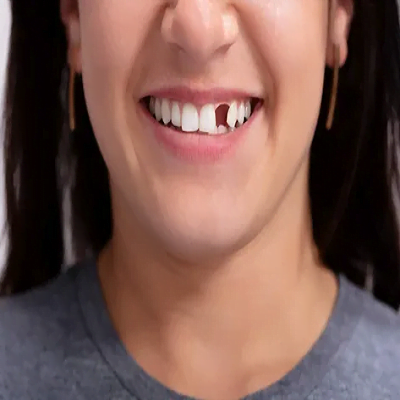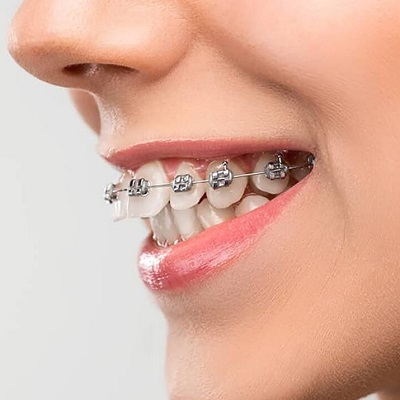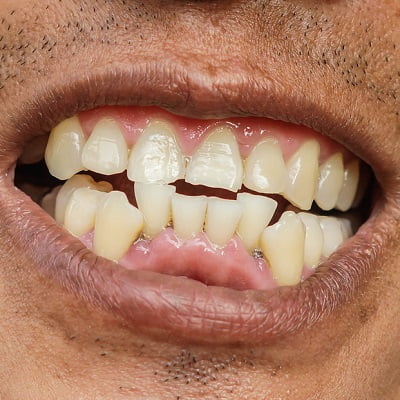
Parents are constantly concerned about their children’s health and well-being. One aspect of their health that often goes unnoticed is dental health, specifically the alignment of their teeth. Protruding teeth in Islamabad, or teeth that stick out noticeably can cause concern.
This comprehensive blog post will explore the reasons behind protruding teeth, potential issues they may cause, and the various treatment options available for parents to consider.
What are Protruding Teeth?
Protruding teeth, or overjet or buck teeth, occur when the upper front teeth extend too far forward, creating a noticeable gap between the upper and lower teeth. This condition can be attributed to various factors, including genetics, thumb-sucking habits, mouth breathing, and jaw discrepancies.
Genetics plays a significant role in determining a child’s dental health, and if either parent had protruding teeth, there is a higher likelihood that their child may inherit the trait. Thumb-sucking and prolonged use of pacifiers can also contribute to protruding teeth, as the pressure applied to the front teeth can lead to misalignment. Additionally, breathing through the mouth instead of the nose may impact tooth development and contribute to protrusion.
Potential Issues Caused by Protruding Teeth:
While protruding teeth may seem purely cosmetic, they can lead to various issues affecting oral health and overall well-being. Some of the potential problems associated with protruding teeth include:
- Increased Risk of Trauma: Protruding teeth are more vulnerable to injury, especially during accidents or falls. Children with overjet may experience more severe injuries to their front teeth due to their prominent position.
- Difficulty in Chewing: Misaligned teeth can affect a child’s ability to chew correctly, potentially leading to digestive issues. This may result in avoiding certain foods, impacting nutrition and overall health.
- Speech Impediments: Protruding teeth may contribute to speech difficulties, affecting the child’s ability to pronounce certain sounds correctly. This can lead to communication challenges and potential social issues.
- Self-Esteem and Psychological Impact: A child with noticeably protruding teeth may experience self-esteem issues and face peer teasing or bullying. Addressing the problem early can help prevent potential psychological impacts on a child’s development.
Treatment Options for Protruding Teeth:
At SKN Cosmetic Clinic Islamabad, several treatment options are available to correct protruding teeth, from preventive measures to orthodontic interventions. Here are some common approaches:
Orthodontic Treatment:
Braces are a common and effective solution for correcting protruding teeth. Orthodontic treatment gradually moves the teeth into proper positions, addressing cosmetic and functional concerns. In some cases, headgear or other appliances may be recommended to guide jaw growth.
Early Intervention:
Identifying and addressing the issue during the early stages of a child’s development can prevent more severe problems later. Orthodontic evaluations are recommended by the American Association of Orthodontists around the age of 7 to detect potential issues and plan for early intervention if necessary.
Surgical Options:
Surgical intervention may be considered in severe cases, especially when jaw discrepancies are a contributing factor. This is typically a last resort for cases where other treatments have proven ineffective.
Parental Role and Support:
Parents play a crucial role in monitoring their child’s dental development and addressing any concerns promptly. Here are some proactive steps parents can take:
- Regular Dental Checkups: Schedule regular dental checkups for your child, starting early. Dentists can monitor dental development and identify any issues early on.
- Promote Healthy Habits: Encourage proper oral hygiene practices, including regular brushing and flossing. Teach your child the importance of a healthy diet and its impact on dental health.
- Address Behavioural Habits: Be aware of and address any thumb-sucking or pacifier use. Consult with a pediatric dentist for guidance on breaking these habits in a positive and supportive manner.
- Open Communication: Foster open communication with your child about their dental health. Address any concerns and emphasize the importance of orthodontic treatment for their overall well-being.
The Bottom Line!
A comprehensive understanding of protruding teeth is crucial for parents to effectively navigate their child’s dental health. Parents can ensure that their child’s dental development is on the right track by staying proactive, seeking professional guidance, and addressing issues early on. Remember, a confident and healthy smile is aesthetically pleasing and contributes to a child’s overall physical and psychological well-being.








